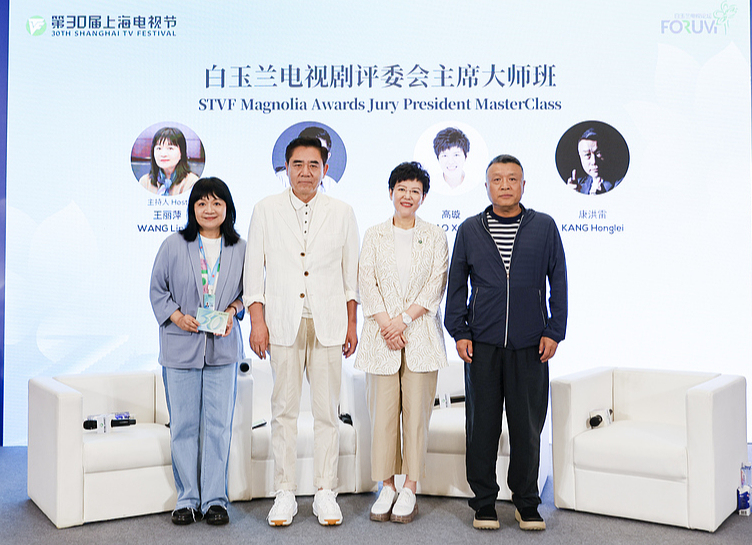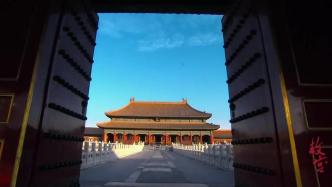
The past ten years have been a critical stage for Chinese documentaries to enter a high-quality development. The number and quality of documentary creations have increased significantly, and their commercial value has further highlighted. In order to further promote the high-quality development of documentaries in the new era, the 28th Shanghai TV Festival specially set up a "Documentary Day", and a series of activities will be held on June 21. Among them, the "Magnolia Documentary Forum" takes "Documentary Expression in Changing Times" as the theme, and invites a group of outstanding Chinese and foreign documentary filmmakers to exchange ideas.
According to the statistics of Entrepreneurship, in 2022, the production time of documentaries will exceed 90,000 hours, and the broadcast time will exceed 800,000 hours. The number of new films on typical video platforms will be 1,040; A total of 64,000 hours of documentaries will be broadcast on local satellite TV channels in 2022, and the market popularity and word-of-mouth have both risen.
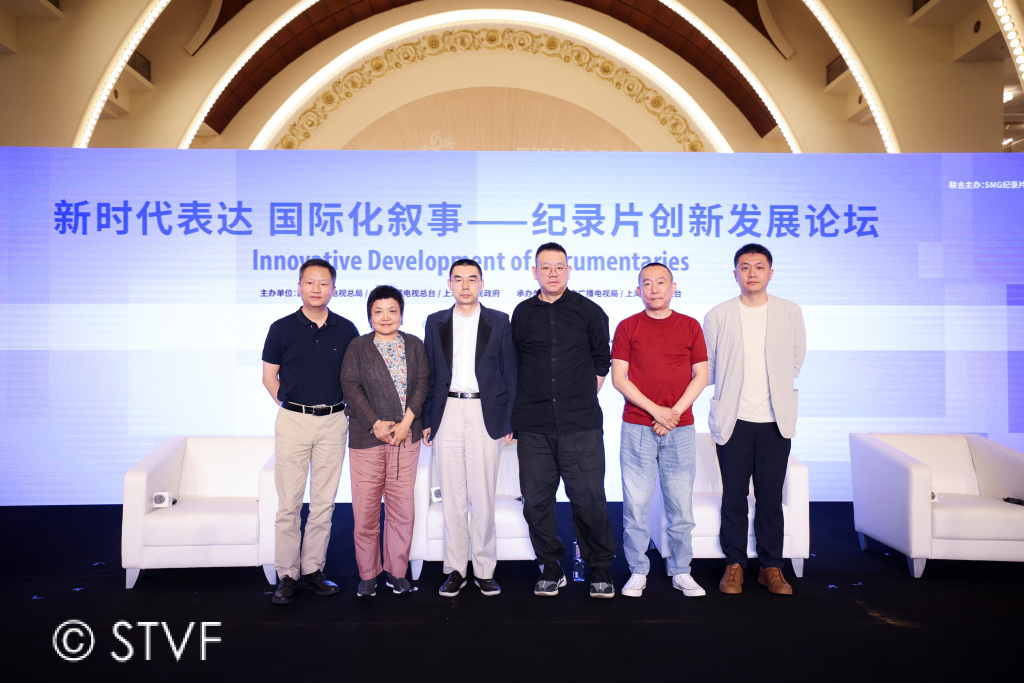
Group photo of forum guests
On June 21, the "Magnolia Documentary Forum" held at the Shanghai TV Festival launched discussions from two dimensions: "Innovative Expression of Documentaries in the New Era" and "International Narrative of Chinese Stories".
How to further innovate the subject matter of documentary creation? And how to further absorb nourishment from the excellent traditional culture? What impact will technological developments such as AI and Metaverse bring to documentary creation? At the roundtable forum on "Innovative Expression of Documentary in the New Era", the guests shared and exchanged ideas on the subject, idea, technique and technology of documentary creation around these topics.
Opening up new genres: groping for undiscovered stories + new narrative methods for old stories
Xu Huan, the producer and director of China Central Radio and Television's film and television drama production center, who has produced high-profile historical and humanistic documentaries such as "The Forbidden City" and "If the National Treasure Can Talk", took the lead in bluntly saying: For creation, the simplest core is "presenting the unrecognized". story told". She believes that whether it is shooting people, animals and plants, or the relationship between everything in the world, content creators must bear a "ideological leadership."

Stills of "If the National Treasure Could Talk"
"How to recognize our story? How to express it in a new narrative language? In fact, the meaning of 'untold story' is a direction that our team has been following." The 5-minute and 15-minute short videos, and future documentaries such as "The Last Story of Beijing Man", "Just to Run" and "Flying the Sky", the interaction between large and small screens and multiple screens also indicates that Another innovation in the content of future documentary creation. Cooperation with financial media and new media will also lead to changes in content.
Regarding opening up a new type of documentary, Zhang Tongdao, director of the Documentary Center of Beijing Normal University, talked about the emergence of phenomenal works and the crux of the problem from a theoretical and critical perspective.
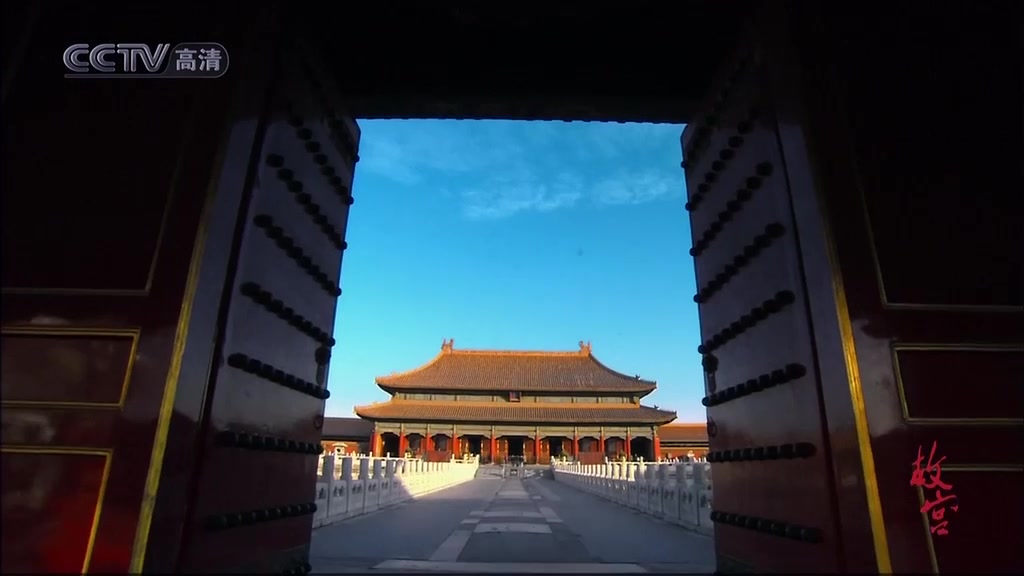
"Forbidden City" stills
""The Forbidden City" opened up a new genre. The money spent at the time exceeded our imagination, and the final effect also surprised us. It turns out that documentaries can go so far in expressing history, far breaking through our understanding of documentaries. awareness. The rise of blockbuster awareness has given documentaries a new way of expression and the ability to shoot a subject to the extreme. After 2012, Chinese documentaries have undergone tremendous development. We must say today that "A Bite of China ’ named a new era of documentary.”
Zhang Tongdao believes that the brand-new things brought by "Bite of the Tongue", including "the sense of speed of narrative" and "aesthetic grasp of fine details", are all an improvement over previous TV documentaries.
"Gourmet shows are everywhere today, and with all due respect, there are not many that really go out of the 'tip of the tongue', nothing more than the tip of the tongue for night, breakfast, and hot pot. We must be cautious when using the word phenomenal. In my opinion , There are only a few phenomenon-level documentaries in China so far, and it does not mean that every film can truly achieve phenomenon-level."
The "untold story" mentioned by Xu Huan, Zhang Tongdao believes that it can also be the discovery of new content in old stories. "For example, "The Chinese on the Titanic", this film is very interesting. We really didn't know that there were six Chinese people on the Titanic. Some of them escaped and survived. This is a new discovery."
In terms of theme innovation, Zhu Lexian, director of Obsidian Studio, Tencent’s online video program content production department, also believes that although vertical short videos have achieved a certain degree of success, many films still lack ideological depth.

"A Bite of China" poster
Chen Xiaoqing, a documentary producer who has made "A Bite of China" and "Flavour World", is actually facing the challenge of innovative content for his new project "Food Guide".
"The method that "Food Guide" tries is to carry out more interdisciplinary cooperation. Through Mr. Chen's visits, they are economists, archaeologists, historians, or even singers, to explore new directions of food together. "Zhu Lexian said, "I think that in the period of 'Bite of the Tongue', Chinese food was pushed from a corner that was never paid attention to the deep level of culture. The food we will discuss today is why we eat this way and why Chinese people eat it this way. To treat food like this, I hope to look at food again."
Solve the bottleneck: dig out the logic behind + in-depth writing ability
The guests generally agreed that under the characteristics of the new era, documentaries have entered a new bottleneck. Investment is larger than in the past, technology is getting more and more gorgeous, but innovation is weak.
Zhang Tongdao concluded, "Mass production is on a flat cycle, and what can really touch us and leave us with a deep spiritual memory and aesthetic experience is limited."
In the face of weak thinking, he believes that documentaries are bound to make new changes. "New media, new technologies, and new narratives are extremely serious issues facing contemporary documentary filmmakers. This is not a problem of film, but a problem of thinking. I think the discussion is very important, even urgent, and I am also waiting for the answer."
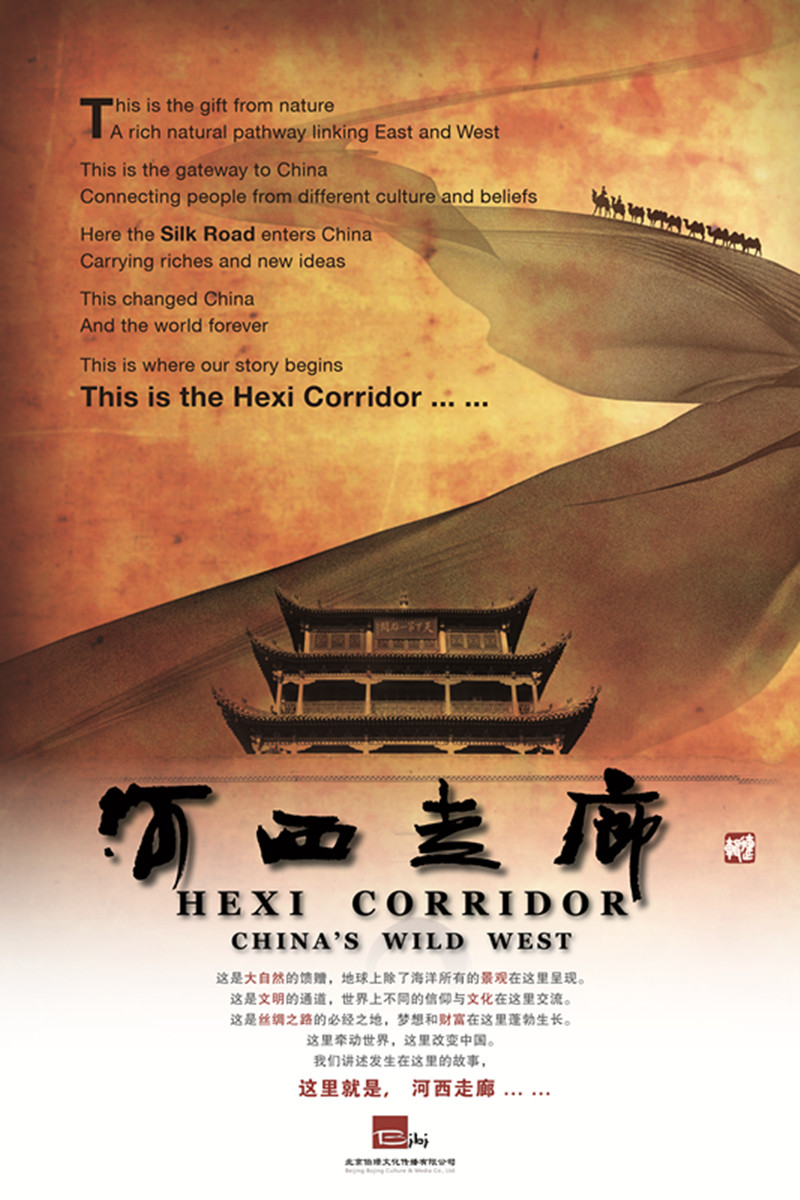
"Hexi Corridor" poster
Li Dongshen, the chairman of Beijing Bojing and the person in charge of Mango Bojing, and his team have produced phenomenal historical and humanistic documentaries such as "Hexi Corridor" and "China", striving for perfection in terms of image aesthetics and in-depth topics. His point of view is that he will not go straight to the result when making a documentary. On the contrary, he is extremely obsessed with the process of seeking guidance.
"I have been thinking about a question these years, why am I still making documentaries? I should be making TV series. Later I found that I am not satisfied with simple storytelling." As a former science student, he often thinks rationally, why Is this the conclusion?
"The way of thinking brought to me by documentaries is a process of solving why. The first time I really started to think about documentaries was when "Hexi Corridor". Why did we shoot "Hexi Corridor"? This question can't be figured out. The film We couldn't continue filming, but later we figured it out, "Hexi Corridor" is about national economic strategy, and we want to show the derivation process."

"China" poster
When Li Dongshen was working on "China", he would ask why today's China is today's China, and today's Chinese are today's Chinese? When I was doing "Shen Congwen and Xiangxi", I would ask, why did people like Shen Congwen and Huang Yongyu come out of Phoenix Town? How did the two-way influence between them come about? When making the popular science documentary "The Story of Eyes", I also asked, 80% of my friends have different degrees of eye diseases. Do they know the principle of eyes? Under what circumstances should you go for medical treatment? He believes that the documentary is to "disassemble step by step" to answer these questions.
"We are now working on the final season of "China", and we will talk about ancient legends and Xia, Shang and Zhou Dynasties. Chinese people have a very important thing called 'Li'. Where did the establishment of 'Li' come from? How to start from the earliest farming From the beginning of civilization, using jade to express 'ritual' is a derivation process. Based on this idea, I think we can have more ideas on expanding the subject matter of documentaries."
Qin Bo, the head of Qin Bo Studio of the Shanghai Radio and Television Documentary Center and the chief director of the documentary "Above the Fields", has transformed from a journalist to a documentary filmmaker. He also raised a question about breaking through the bottleneck of the documentary, "When everyone follows the trend , as the main creator, you have to be vigilant, should you follow along?" Qin Bo believes that young documentary filmmakers should spend more time learning traditional writing. Under the impact of short videos, in-depth writing skills need to be retrained.
Relying on his acumen for the news, he also added, "I hope more creators will pay attention to the stories that are happening, especially in the midst of the great social changes, the stories that are happening are especially hoped to be seen."
Zhang Tongdao also reminded the creators to ask themselves a few questions before setting up a project and shooting.
"First, has anyone done something similar? If so, what is the difference between what you do and what others do? Second, no matter at home or abroad, what methodology is used to complete this subject? Do you have any breakthroughs in new methods? ? Third, why do audiences want to watch your film? There must be at least one reason for others to watch your film. If these questions are clear, I think this film can be shot. Maybe in the process, it will There's something new coming up."
Co-ownership and Going to Sea: IP Localization + Responding to International Concerns
"Only by integrating China and foreign countries can we pursue excellence." At the beginning of the second half of the forum, Wang Lijun, Secretary of the Party Branch of the SMG Documentary Center, gave the opening remarks as the host: "Chinese directors are talking about how to promote the development of Chinese documentaries, but to promote the development of Chinese documentaries , it’s not enough for us Chinese directors to figure it out in our minds, we should have a kind of tolerance.”
Ryota Kotani, chief producer of the NHK program production company, first emphasized the concept of documentaries, which is to have empathy and curiosity.
At the same time, he also emphasized the important role of new technology in the development of documentaries, "Japanese audiences like China's 5,000-year history very much. If we can show these 8K or 4K high-definition images in Japanese In front of the audience, it must be able to convey the ancient Chinese history and culture vividly and well."
China has a large population, and diversity is also critical to Chinese society. Ryota Kotani believes, “Generally speaking, social conflicts will become the subject matter of documentaries. For example, documentaries that show the aging society, and there are more documentaries that can show the tension in China; Curiosity about China, such as history, culture, and human geography, and on the other hand, it is necessary to capture some attention from overseas audiences about China's current situation."
Ruan Xiaoqing, Senior Special Program Manager of TVB News and Information Department, also holds the same view. She believes that instead of studying big data, it is more important to follow the original intention. She talked about the very important point in her original heart, which is to pay attention to people's stories and tell the current society well. If you can tell people's stories well, you can cross borders and races.
For Chinese documentaries, the "hot search terms" for overseas audiences are the Great Wall, hot pot, pandas, and terracotta warriors. How to break through barriers and mine more good content? Let more documentaries with Chinese characteristics go out? Zhang Yuan, chief executive producer of Bilibili documentaries, believes that, first, it is necessary to think about how to localize excellent foreign models and IP, so that both parties can have the greatest effect. Second, from the perspective of topic selection, it should be as rich and diverse as possible.
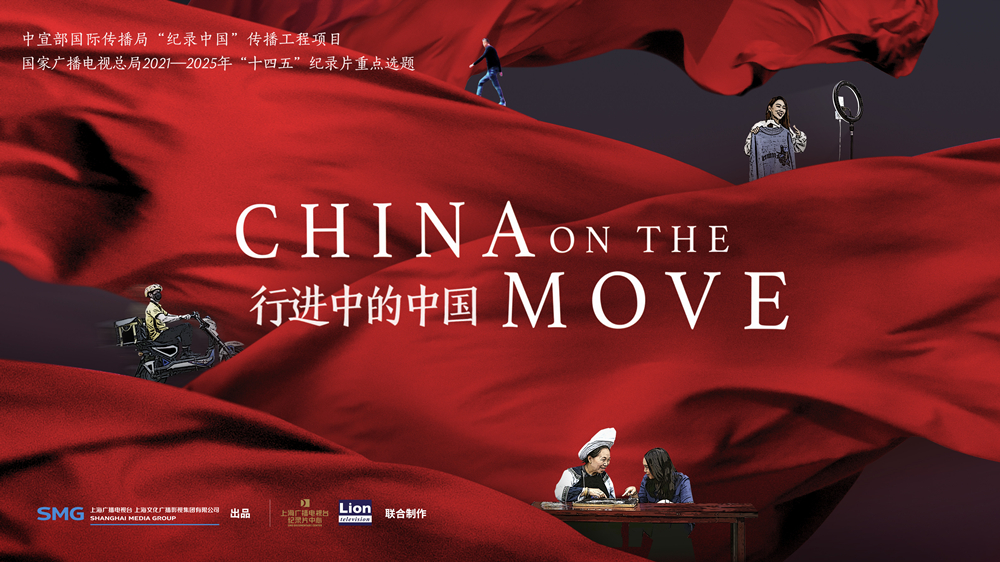
"China on the Move" poster
""China on the Move" is a very good example. Very hard topics, including politics, economy, environmental protection, people's livelihood, technology, etc. In the film, there is a host Arthur Jones who understands both China and foreign countries. In terms of broadcasting, the sense of substitution is very good. In the overseas dissemination of our documentary programs, this point can be used consistently. In fact, we can touch some more difficult topics. Respond to international concerns and make a Chinese voice , Tell a good Chinese story, but first of all, there must be an in-depth interpretation and in-depth investigation of the hard-chosen topics, and I think this is also the direction we should go.”
Documentary director Arthur Jones is also filming the terracotta warriors, starting with the terracotta warriors, mentioning the Mausoleum of Qin Shihuang, and also talking about the story of Sanxingdui. During the process, Luo Fei discovered that basically none of the stories could have foreign references.
"The story is purely Chinese. There is no example for comparison. We need to find some richer stories in it. If it is all history, don't put some old materials. We must shoot new things now. Speaking from experience, there will always be some new filming methods and new techniques; don’t throw away ready-made IPs easily. Foreigners seem to understand it, but in fact they often have a little knowledge and can analyze it in depth.” Luo Fei also suggested , "We need to seize more opportunities to cooperate with independent directors and independent filming teams; finally, use more professional hosts. They are not only TV hosts, but also have their own professional background, either scientists or history. Scientists, archaeologists, will definitely get a different point of view."
BBC Studios producer Steve Crabtree (Steve Crabtree) was very excited when talking about the cooperation with Bilibili over the years, ""Future Hitchhiker's Guide" is also very important for us in the past year. A sci-fi themed documentary. As the most famous sci-fi writer in China, Liu Cixin interpreted "The Three-Body Problem" as a background. The film also performed very well at Station B. For the audience and lovers of documentaries at Station B, including Fans of science fiction have actually broken the circle, and more importantly, they have sparked an upsurge in science fiction documentaries. This cooperation has a good experience, and it also opens up opportunities for more cooperation in the future. Including the upcoming "Eternal "Civilization" and more new programs, we also hope to expand the efficiency of our international communication through joint co-production, copyright import, and copyright export cooperation model."
"I think "The Three-Body Problem" and Liu Cixin can be said to be the most famous and popular themes in the world now, so we hope to further expand the possibilities in this area in the next few years. Chinese science fiction themes, I hope Further open the market in the world," he added.
On the same day, the participants said that the critical period and great opportunities for the development of the documentary industry are still in sight, and documentarians still need to adhere to the creative attitude of value innovation and the creative concept of keeping pace with the times, and use each work to record the development of the country, the progress of the nation, The images of social changes and people's struggles show the world a real, three-dimensional and comprehensive China.


